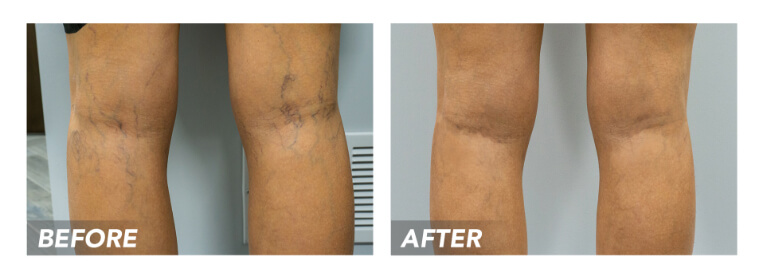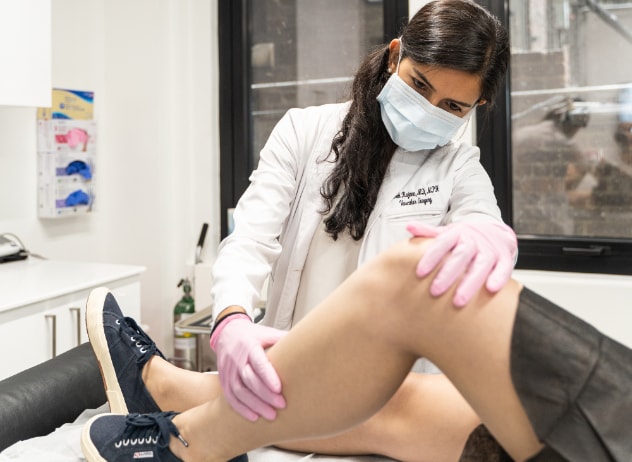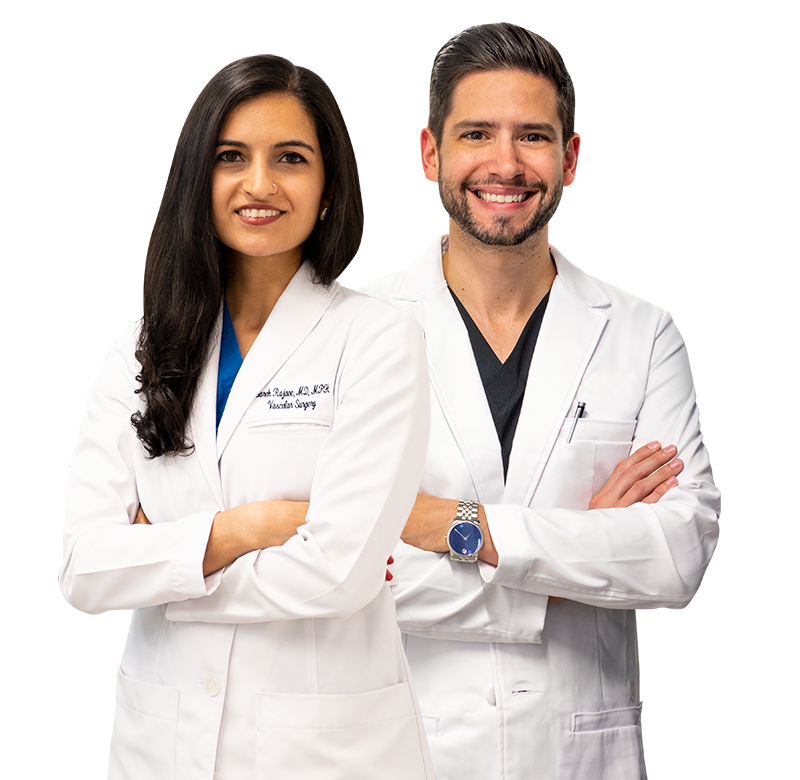What Do You Call a Vein Specialist? And Other FAQs

What do you call a vein specialist?
What do you call a vein specialist? If you’re asking that question, you might be dealing with spider veins, varicose veins, or other vein problems. The official terminology for a vein specialist is phlebologist. The word “phlebologist” comes from “phlebology,” which is the branch of medicine concerned with the prevention, identification, diagnosis, and treatment of vein problems. However, when looking for phlebologists, you can simply refer to them as vein doctors, vein specialists, vascular doctors, or vein physicians.
Which doctor is best for varicose veins?
Phlebologists, also known as vein doctors, are the best physicians for the diagnosis and treatment of varicose veins. However, all vein doctors aren’t the same. The bar for entry into phlebology is fairly low — doctors can become phlebologists after a few simply written examinations and minimal training. That’s why the market is full of inexperienced doctors who treat spider veins without addressing the root cause of vein problems, leading to a high risk of vein disease recurrence. Some vein doctors still recommend vein surgeries, even though minimally invasive spider vein and varicose vein treatments are safer and more effective.
When looking for a phlebologist for varicose veins, you should focus on board-certified vein doctors. To get board-certified by the American Board of Venous and Lymphatic Medicine, vein doctors must pass numerous challenging professional milestones, such as residency programs, fellowships, and specialization in the latest minimally invasive vein treatments. As such, board-certified vein doctors represent the highest standards of vein care and excellence. The vein doctor should also be incredibly compassionate, and they should have specialized training in minimally invasive procedures and vascular imaging.
Our medical centers for vein treatment in California are led by some of the country’s leading board-certified and Harvard-trained vein doctors. We individually select our vein doctors from the country’s leading medical schools, residency programs, and fellowships. Our vein doctors also use cutting-edge diagnostic tools to identify and treat the root cause of your spider veins and varicose veins, ensuring safe and long-lasting results. If you’re looking for a vein doctor or a vein treatment center, please schedule an appointment online.
Do varicose veins mean heart disease?
The presence of varicose veins doesn’t indicate heart disease. The presence of varicose veins is usually indicative of a circulatory disorder, i.e., a problem with the blood vessels responsible for transferring blood to and from your heart. More specifically, varicose veins are symptomatic of chronic venous insufficiency, a circulatory disorder wherein the collapse of vein valves leads to backward blood flow and the accumulation of blood in leg veins.

What is the main cause of varicose veins?
Chronic venous insufficiency is the main cause of varicose veins. Venous insufficiency is a medical condition triggered by the collapse of vein valves, mechanisms that act as one-way doors to ensure smooth blood circulation to the heart. When the vein valves collapse, blood flows backward due to gravity and accumulates in the leg veins, eventually leading to vascular dilation and the gradual appearance of spider veins and varicose veins.
Is walking good for varicose veins?
Walking is certainly good for vascular health and varicose veins. When you walk, your calf muscles push the accumulated blood in your leg veins to your heart, thus reducing the pressure on your varicose veins. Walking also improves your blood circulation to the heart, which further alleviates the symptoms of vein disease. But walking can’t treat varicose veins because the damaged vein valves can’t be healed, so the relief is temporary. That’s why it’s not enough to simply walk frequently — you need to consult a reliable medical center for vein treatment.
What happens if varicose veins are left untreated?
If varicose veins are left untreated, blood will continue accumulating in the leg veins, leading to increased vascular dilation and the weakening of vein walls. The veins will eventually weaken, leading to an increased risk of burst varicose veins and profuse bleeding, for which you have to be taken to an emergency room.
When should varicose veins be removed?
If you have varicose veins, you need to consult a vein doctor about varicose vein removal. Even though superficial varicose veins aren’t always dangerous in and of themselves, they’re often symptomatic of underlying chronic venous insufficiency, which can be very dangerous. That’s why you shouldn’t wait — contact a vein doctor to explore your vein treatment options immediately.
How do I know if I have a blood clot in my varicose vein?
One of the long-term consequences of untreated vein disease is the possibility of deep vein thrombosis, a medical condition wherein the accumulated blood in your leg veins hardens into blood clots. The most common signs and symptoms of blood clots in veins include leg swelling, tenderness, pain, discomfort, and red/ bluish skin discoloration. The blood clot may eventually break away and travel to your lungs, leading to a potentially fatal pulmonary embolism.
What are the warning signs of deep vein thrombosis?
The primary warning signs of deep vein thrombosis include increased leg swelling on the affected leg, increased leg pain in the calf, frequent leg cramps, soreness, redness and discoloration, and a feeling of warmth. If you notice these signs and symptoms of deep vein thrombosis, please contact a medical center for vein treatment in California.
What is the best clinic for varicose veins?
Our medical center for vein treatment in California is widely considered to be one of the best medical centers specializing in minimally invasive spider vein and varicose vein treatments. Our medical experts examine your leg veins, discuss your symptoms, review your medical history, and provide the best minimally invasive procedures to address the root cause of your condition. Please schedule an appointment to explore your vein treatments in California.
CA Vein Doctors
Meet our team of California Vein Treatment Specialists
Vein Treatments are covered by most major medical insurances, including Medicare. Call us today to verify your insurance for FREE >

Contact us
CALL US
Speak instantly with one of our team members; they will answer any questions you may have regarding insurance coverage, booking an appointment and our vein treatment locations. (858) 800-8772
BOOK APPOINTMENT
Visit our Book Appointment page and instantly request an appointment at the California vein Tretment. We offer Free Insurance Verification before your appointment.
GET DIRECTIONS
Learn how to get to one of our California vein centers in San Diego & San Jose